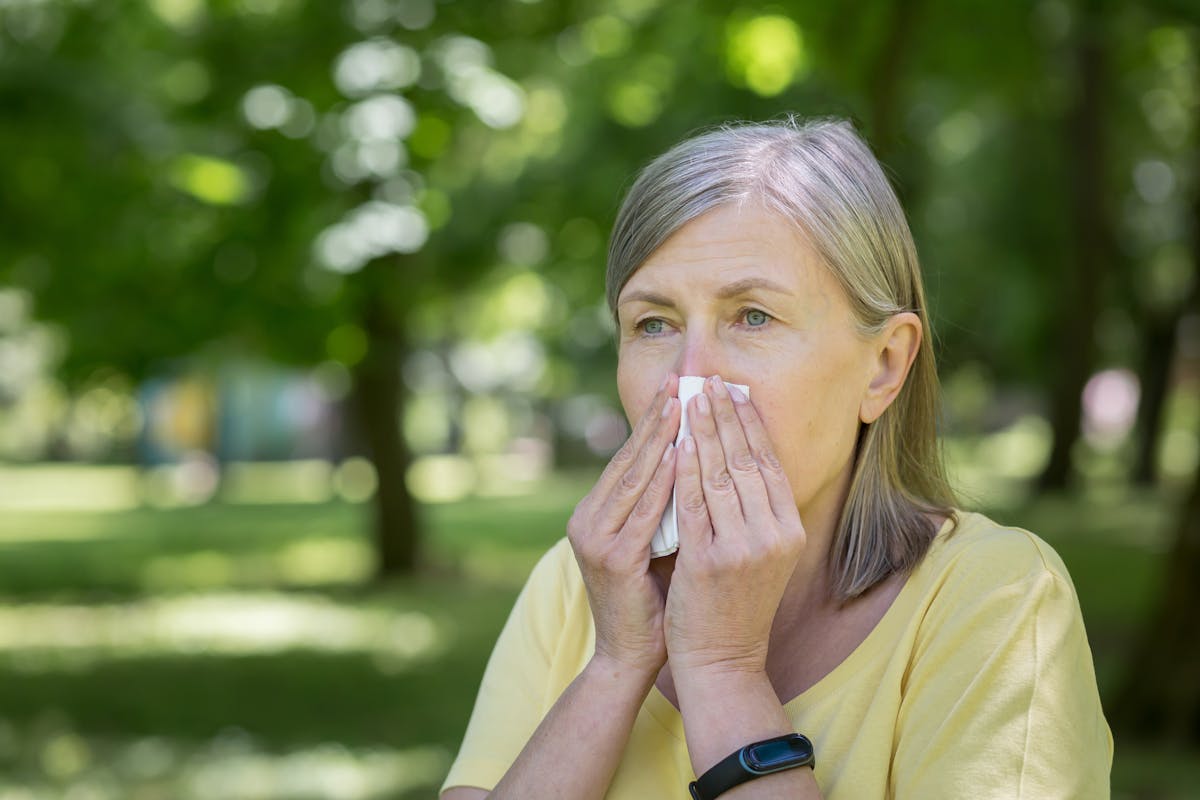Understanding Spring Allergies: Tips to Help Seniors Find Relief

The spring season brings beautiful weather, blooming flowers, and longer days to most parts of the country. For many seniors, however, it also marks the return of seasonal allergies. These allergies, which are triggered by pollen from trees, grasses, and flowers, can make life uncomfortable.
Symptoms like sneezing, itchy eyes, runny noses, and congestion are common, and they can be especially challenging for older adults, due to changes in their immune system and other health factors. Let’s explore the most common causes of spring allergies and go over some tips to help older adults find relief.
What Are the Causes and Symptoms of Spring Allergies?
Spring allergies are primarily caused by allergens in the air, such as pollen, mold spores, and dust mites. The onset of warmer weather triggers the release of pollen from trees, grasses, and weeds. When these particles are inhaled or come into contact with the skin, the immune system can overreact, causing allergy symptoms.
Common spring allergy symptoms in seniors include:
- Sneezing and coughing
- Itchy or watery eyes
- Runny nose and nasal congestion
- Throat irritation
- Fatigue
Seniors often are more sensitive to allergens and experience more serious side effects for a variety of reasons, including:
- Weakened immune system: As people age, their immune system tends to weaken. This can make it more difficult for the body to effectively deal with allergens.
- Preexisting health conditions: Many older adults have underlying health conditions like asthma, chronic respiratory diseases, or heart problems. Allergies can worsen the symptoms of these conditions.
- Medications: Some medications commonly taken to treat allergy symptoms can have side effects such as drowsiness. Another challenge to be aware of is that allergy medicines can interact with medications that are often prescribed to older adults for other medical issues.
Tips to Help Seniors Manage Spring Allergies
If you or a loved one are struggling to keep symptoms under control this spring, here are a few suggestions you might find helpful:
- Monitor pollen levels: While this number can vary by location, researchers say pollen count tends to rise throughout the morning and peak at midday. Many weather websites/apps and local news stations provide daily pollen forecasts. This allows you to plan outdoor activities around expected times of higher and lower pollen counts. For example, if you like to run or walk, doing so at dusk or after dark might be kinder on your system. And there are steps you can take to stay safe while running or walking after dark.
- Create an allergy-free zone: Creating a safe indoor environment can be one of the most effective ways to manage allergies. Seniors should keep windows and doors closed during peak pollen times, particularly in the spring. Using air purifiers with HEPA filters can also help reduce airborne allergens. In addition, washing bedding and changing clothes after being outside can help lessen pollen exposure indoors.
- Use allergy medications wisely: Over-the-counter antihistamines, decongestants, or nasal sprays can be effective in managing allergy symptoms. However, older adults should be cautious and consult their doctor before taking any of these medications to ensure they don’t interfere with other prescriptions or medical conditions.
- Practice good hygiene: After spending time outside, seniors should wash their hands and shower to remove any pollen that may have accumulated on their skin and hair. This will help reduce the chances of transferring allergens to the face and eyes. Throwing your clothes in the washer when you come inside can also help prevent pollen from being scattered around the house.
- Stay hydrated and rested: Make sure to stay hydrated—drinking plenty of fluids helps thin mucus, easing nasal congestion. Getting enough rest is important, too, as both allergy symptoms and medications can cause fatigue. Good sleep supports the immune system in managing allergic reactions.
- Consider allergy shots: Despite your best efforts, you may not be able to manage spring allergies on your own. For seniors whose symptoms don’t respond to medications, allergy shots (immunotherapy) might be a viable option. This treatment involves regular injections of allergens to gradually desensitize the immune system, providing long-term relief.
Consider an Emergency Alert System
If you suffer from spring allergies or another health condition, you may be restricting yourself from enjoying an active lifestyle because of safety concerns. One idea that may help you gain more confidence is to invest in an emergency response device. These units work off wireless technology that allow you to call for help from almost anywhere. Call 1-844-203-5617 to learn more!